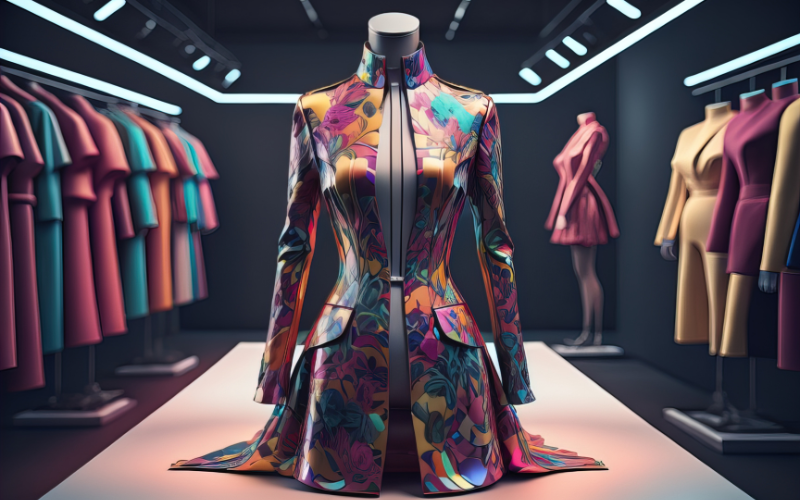The fashion industry in India has experienced a rapid transformation over the last few decades, evolving from a niche sector to a thriving global market. With this growth, the need for formal education in fashion design has become more critical than ever. Aspiring designers must not only possess creativity but also the technical knowledge and industry insight to make a mark in this competitive space. This is where institutions like the International College of Fashion (ICF) come into play, offering the education and resources necessary for success.
The Need for Fashion Design Education in India
In today’s fast-paced and ever-changing fashion landscape, formal education in fashion design is not just an advantage but a necessity. Fashion design training equips students with the skills to understand fabrics, textiles, garment construction, and the nuances of fashion business management. A comprehensive curriculum ensures that budding designers stay relevant and innovative, enabling them to cater to evolving market demands.
In India, fashion education has become essential for bridging the gap between raw creativity and industry expectations. With Indian fashion designers gaining global recognition, the demand for qualified professionals has surged. Whether it’s haute couture, prêt-à-porter, or streetwear, there’s a growing need for individuals who can deliver unique, sustainable, and trend-setting designs.
How Fashion Design Training Helps Students Make Their Mark
Fashion design training is more than just learning how to sketch or sew; it’s about understanding the entire ecosystem of the fashion industry. A robust education in fashion empowers students to develop a strong foundation in design principles, as well as hands-on experience with real-world projects. Fashion courses foster creativity while instilling critical thinking and problem-solving skills.
Training also opens doors for students by introducing them to industry networks, fashion shows, internships, and collaborations with well-known designers and brands. These opportunities help students gain exposure and build portfolios that stand out in a competitive market. By understanding both the creative and commercial aspects of fashion, students are better positioned to carve out a niche for themselves in the industry.
The Need for Qualified Fashion Designers and Industry Opportunities
As the Indian fashion industry continues to grow, so does the demand for qualified fashion designers. Fashion is no longer restricted to major urban centers; Tier II and Tier III cities in India are witnessing a fashion revolution, creating job opportunities across the nation. Globalization and the rise of e-commerce platforms have also opened up international opportunities for Indian designers.
Fashion designers are now required in a variety of sectors, from luxury brands to sustainable fashion, bridal wear, and ready-to-wear labels. There is also an increasing focus on the business side of fashion, with roles in merchandising, fashion buying, and retail management becoming critical to the success of a fashion house. For students who wish to be a part of this dynamic industry, pursuing formal education in fashion is the best way to stay ahead of the curve and seize the numerous opportunities available.
The Role of Infrastructure in Fashion Designing Institutes
A well-infrastructure fashion designing institute plays a crucial role in the holistic development of students. Top institutes like ICF are equipped with state-of-the-art facilities, including advanced design studios, textile labs, and computer-aided design (CAD) software. These resources enable students to experiment with their ideas and hone their craft in a professional setting.
Moreover, fashion institutes with strong industry connections provide students with the opportunity to interact with industry experts, participate in fashion shows, and engage in internships with leading fashion houses. This real-world exposure is essential for students to gain insights into the workings of the industry and develop the confidence to succeed.
5 Benefits of Studying Fashion Courses at the International College of Fashion (ICF)
-
- Comprehensive Curriculum with Industry Focus
At ICF, the curriculum is designed in collaboration with fashion industry professionals to ensure that students receive a well-rounded education that covers both creative and business aspects of fashion. Students gain knowledge in design, textiles, marketing, and entrepreneurship, ensuring they are equipped for the evolving demands of the industry. - Opportunities for Real-World Exposure
One of the key benefits of studying at ICF is the access to internships and live projects. Students are encouraged to participate in fashion shows, exhibitions, and design competitions, allowing them to showcase their work and gain exposure. ICF’s tie-ups with industry leaders like Bajaj Capital also open doors for placements and job opportunities. - State-of-the-Art Infrastructure
The infrastructure at ICF includes modern design labs, studios, and technology-enabled classrooms that give students access to the latest tools and resources. This not only helps them develop their design skills but also ensures they are well-versed in modern fashion technologies like CAD. - Global Recognition and Industry Network
ICF is a recognized name among Indian students aspiring for a career in fashion. The institute has built a strong network with both national and international fashion brands, allowing students to interact with fashion designers, merchandisers, and retail giants. This industry exposure is invaluable in helping students build a solid career path. - Diverse Course Offerings
ICF offers a range of courses that cater to different career aspirations. These include the Bachelor’s in Fashion Design & Technology, Master’s in Fashion Design & Technology, and Post Graduate Diploma in Fashion Entrepreneurship. Each program is tailored to equip students with the necessary skills, from foundational design principles to advanced entrepreneurial strategies.
- Comprehensive Curriculum with Industry Focus
Popularity of ICF Among Indian Students
The International College of Fashion has consistently attracted students from across India, thanks to its practical approach to education, world-class infrastructure, and strong industry connections. Known for offering specialized programs in Fashion Entrepreneurship and Design, ICF stands out as one of the leading institutes in Delhi for those who wish to make a mark in the fashion world. Its emphasis on innovation, creativity, and entrepreneurship sets it apart from other fashion schools, making it a popular choice for Indian students.
Fashion Courses at ICF
At ICF, students can choose from various programs that suit their career goals:
- Bachelors in Fashion Design & Technology: A comprehensive program that covers all aspects of fashion design, including textiles, pattern making, and garment construction.
- Masters in Fashion Design & Technology: A more advanced program focusing on innovation, research, and the business of fashion.
- Post Graduate Diploma in Fashion Entrepreneurship: This program is tailored for students who aspire to start their own fashion labels or businesses, combining creativity with entrepreneurial skills.
Conclusion
Fashion education is vital for anyone looking to succeed in this fast-paced industry. With the growing demand for qualified designers in India, studying at a well-established institute like ICF can be the steppingstone to a successful career. By offering state-of-the-art infrastructure, real-world exposure, and industry-relevant courses, ICF helps students not only hone their design skills but also develop the business acumen needed to thrive in the fashion world.










